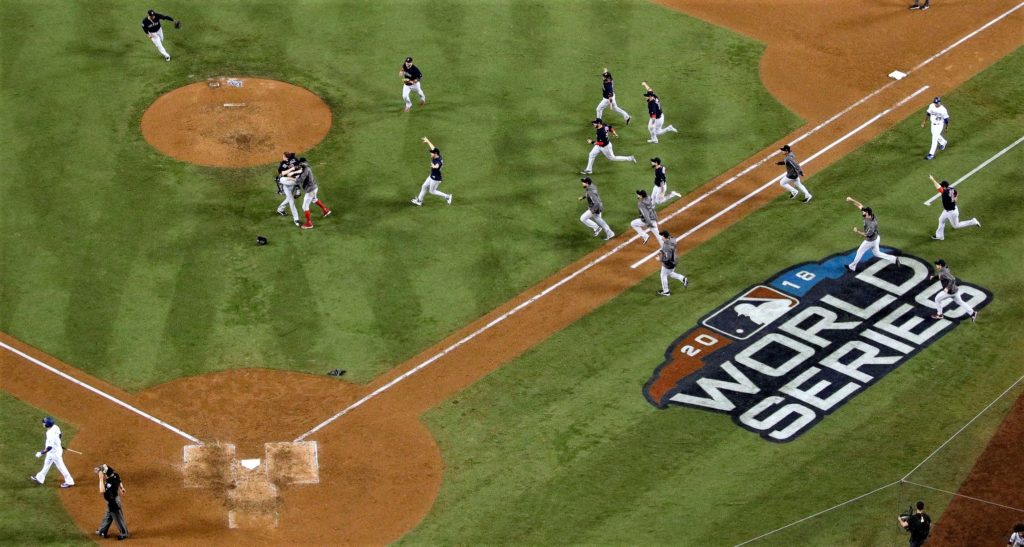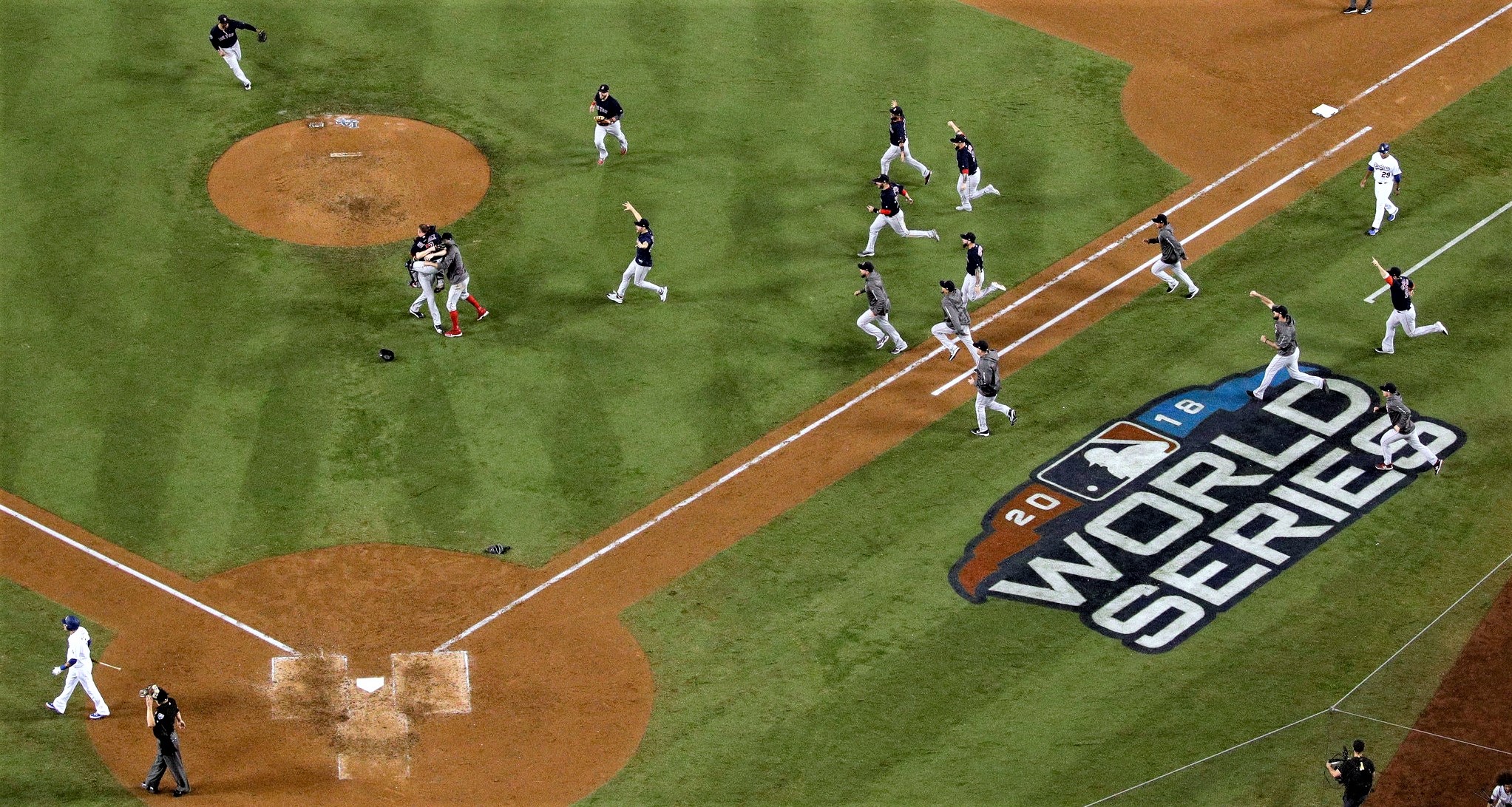I beg your indulgence. Due to my watching the opening impeachment arguments in the Senate — to be used in a future commentary — I am postponing my interview with a U.S. congressman until Thursday.

The Boston Red Sox won the World Series in 2018 and are now under investigation Credit…Mark J. Terrill/Associated Press
Discussing sign stealing in college football, Miami University coach Chuck Martin said, “ ‘I don’t like stealing signals being part of the game, but it is part of the game, so it’s not my choice. ‘You’ve got to have multiple signals, you’ve got to mix up your signals during the year, [and] you’ve got to change your signals,’ ” reported the Toledo Blade in November 2019. …
“And while defenses can use signals to learn offensive calls,” The Blade continues, “Bowling Green head coach Scot Loeffler said the practice works both ways. ‘There was one game… [where] I just watched the defensive coordinator because we had all his signals in the first quarter. I was able to call the offense based upon already knowing the defense.’
“Though coaches might not like it, stealing signals presently is very much part of college football.
“ ‘It’s just like baseball now.’ ”
And this brings me to the latest scandal: sign stealing… in the 2017 World Series.
“The Houston Astros‘ signs-stealing scheme,” The New York Times reports (Jan 18) “laid bare in a sober yet searing report from the baseball commissioner on Monday, is the latest embodiment of that old sports saw, ‘If you ain’t cheating, you ain’t trying.’ The 2017 World Series champions mixed high-tech with the low-fi — using a television monitor near the dugout to watch the opposing catcher give his pitching signs, then having teammates bang a trash can to let the batter know what was coming.”
As the Times reports, the practice of cheating has going on for years in other sports.
“On their way to six Super Bowl championships, the New England Patriots have been found guilty of using clandestine video surveillance and of somehow ending up with deflated footballs that allowed their quarterback to get a better grip in foul weather. A horse that staged a historic run to the Triple Crown was found to have chemicals associated with performance-enhancing drugs in his system.
“Regulators of Olympic sports acknowledge that they are mostly outgunned on the science and technology fronts. Instead, they rely on law enforcement sources, whistle-blowers and moral outrage, all of which are often in short supply.”
“If you ain’t cheating, you ain’t trying,” is an rational variant of “I’m just fighting fire with fire.” The point being: if others are doing it, I’m justified in doing it, as well. It’s just part of leveling the playing field.
While coaches and team members might makes excuses for this, the bottom line is simple: you’re still a cheater.
Nonetheless, there are owners and general managers who don’t want their reputations and those of their teams corrupted.
“M.L.B. Commissioner Rob Manfred handed down yearlong suspensions for Astros Manager A.J. Hinch and General Manager Jeff Luhnow. Both were subsequently fired by the team’s owner, Jim Crane. The Boston Red Sox’ owners, John Henry and Tom Werner, also parted ways with their manager — Alex Cora, who was a bench coach with Houston during its sign-stealing operation and was identified as a major part of the scheme.
“In addition, M.L.B. stripped the Astros of their first- and second-round draft picks for the next two years and fined the team $5 million. The Red Sox, who remain under investigation for similar violations, may soon be penalized, too.”
Now, I’m a huge Red Sox fan, go to the games whenever I’m in Boston, but hearing this latest news affects my enjoyment of watching a game: is the score legitimate or are they cheating.
However, despite the damning MLB report, “Houston retains its title as the 2017 World Series champion. Presumably, Boston will retain its 2018 title. Would stripping those titles make a difference?”
There is still more than can and should be done.
“ ‘If the goal was to uphold the honesty and sanctity of the game for a broader community, the ultimate penalty is to vacate the wins and the titles,’ said Ann Skeet, a sports and leadership ethicist for the Markkula Center for Applied Ethics at the University of Santa Clara in California. ‘But there are some built-in conflicts — the commissioner works for the owners. They share revenue. Their fortunes are tied together.’ ”
She’s right! Cheating that is not severely punished sends its own special signal: if dishonesty is permitted in sports, it clearly signals new players to the game that talent and discipline don’t matter as much as the third quality, cheating.
If sign stealing becomes a necessary part of any game then the “ends-justifies-the means leads to treating desired goals as moral imperatives,” ethicist Michael Josephson says.
“Most of us,” Josephson adds, “overestimate the cost of doing the right thing, and underestimate the cost of failing to do so.”
When you are willing to do whatever it takes to win, you’re more than likely going to cheat.
The answer, as Skeet points out: stiffer punishments for cheating should send a signal that no one is above the rules of the game.
Comments










